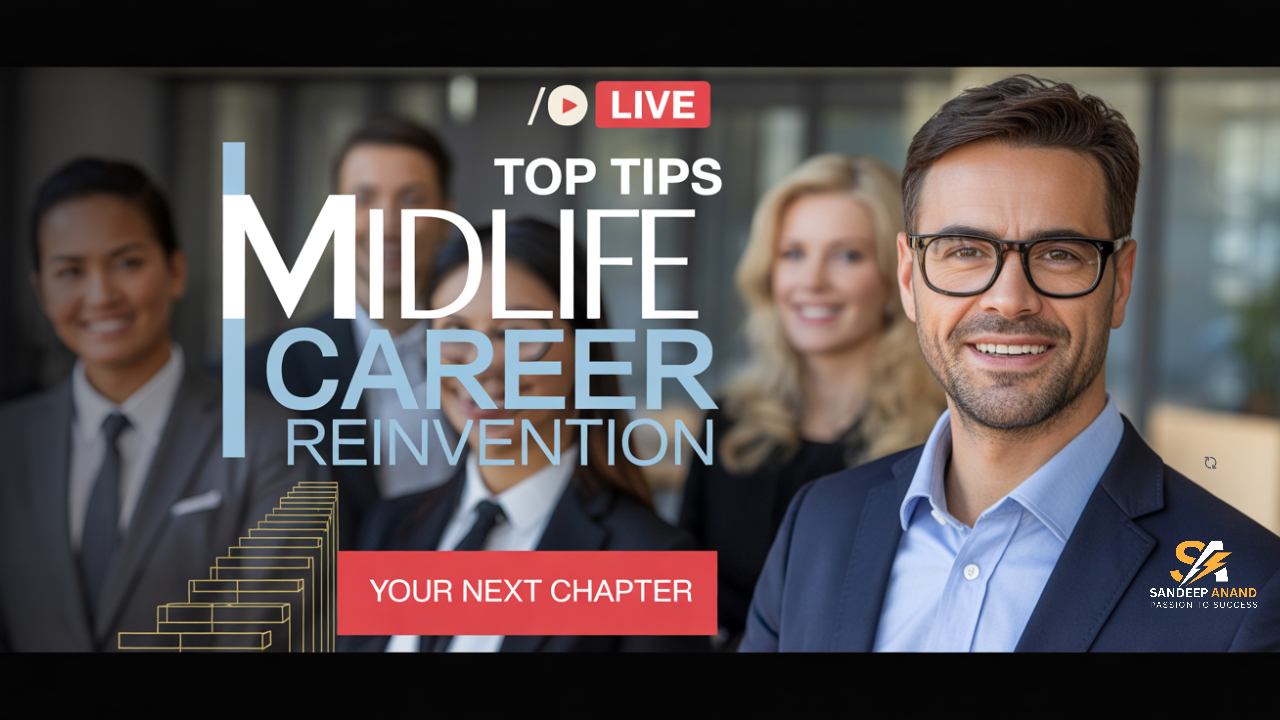7 Silent Career Mistakes That Hurt Your Growth in 2025

What if the very habits you think are helping your career are actually destroying it?
Career mistakes don’t announce themselves with fanfare. They creep in silently, embedding themselves in your daily routine while you remain blissfully unaware. Consider this: the average person spends over 90,000 hours working during their lifetime. That’s more than a decade of your life. Yet despite this massive investment, most professionals make fundamental errors that cap their potential.
The traditional career ladder? It’s dead.
What replaced it feels more like a corporate jungle gym—where adaptability beats rigid planning every single time. The biggest career mistakes to avoid hide in plain sight within your day-to-day work life. Your 30s represent the defining decade professionally, yet this is exactly when routine tasks can trap you in patterns that prevent continuous learning and growth.
The pace of change in today’s job market shows no signs of slowing. What worked yesterday might be obsolete tomorrow. I’ve watched countless talented professionals stall their careers by failing to recognize these subtle pitfalls. The professional world is smaller than you think. Your reputation follows you everywhere.
Here’s what keeps me up at night: whether you’re early in your career or hitting your stride in your 30s and 40s, failing to adapt can make your skills outdated almost overnight.
This article reveals the seven silent career mistakes that could be holding you back—and more importantly, how to fix them before they damage your growth in 2025.
Staying in Your Comfort Zone Too Long
“You miss 100% of the shots you don’t take.”
— Wayne Gretzky, NHL Hall of Famer, widely regarded as the greatest hockey player of all time
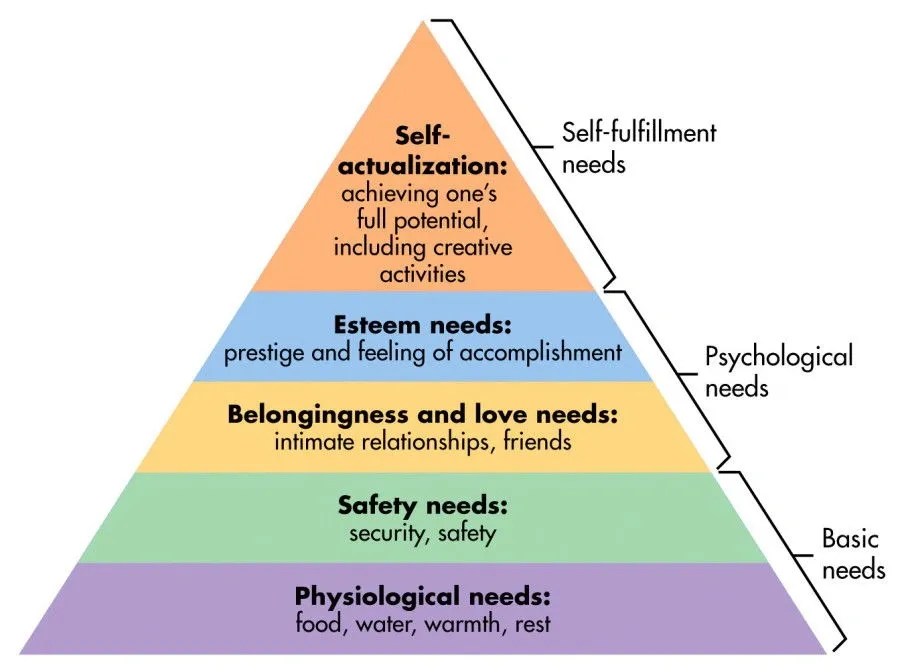
Image Source: Positive Psychology
“You miss 100% of the shots you don’t take.”
— Wayne Gretzky, NHL Hall of Famer, widely regarded as the greatest hockey player of all time
Your comfort zone feels like a warm blanket on a cold morning. Cozy. Familiar. Safe.
But here’s the brutal truth: that same blanket can suffocate your career growth without you even realizing it. Unlike the obvious career mistakes that announce themselves with fanfare, staying where everything feels secure and predictable creeps up on you. What once offered safety slowly becomes a silent prison for your professional development.
What the mistake is
Your comfort zone represents a psychological state where you feel at ease, confident, and in control due to the predictability and familiarity it offers. It encompasses familiar work tasks, methods, routines, and even the people you interact with regularly. The mistake isn’t occasionally enjoying this space—it’s setting up permanent residence there.
Here are the warning signs you’ve been camping in your comfort zone too long:
- You’ve mastered your current role with no new learning
- Your work days feel repetitive and predictable
- You’ve been in the same position for years with no promotion
- The excitement about your work has disappeared
- You rarely face challenges that stretch your abilities
- You’ve stopped networking or meeting new people
If you rarely or never fail at what you do, you’re huddled deep inside your comfort zone. The numbers tell a sobering story: approximately 7% of employees have remained in the same role for five years or more, while 14% have never received a promotion.
Why it hurts your growth
Staying comfortable may feel safe, but it creates serious obstacles to career advancement.
Skill stagnation hits first. When you practice only the skills you’ve already mastered, your professional development flatlines. This becomes particularly damaging in fields like technology, where adapting and continuous learning are necessary to avoid becoming irrelevant.
Missed opportunities follow closely behind. Your comfort zone limits exposure to new possibilities. You might miss advantageous projects or roles because they involve unfamiliar tasks or situations. While others advance, you remain static.
Resilience deteriorates. Avoiding challenges means you fail to develop the mental toughness necessary to handle inevitable adversity. When significant changes occur—and they always do—you’re less equipped to adapt.
Creativity dies a slow death. The familiar routines that feel safe actually prevent you from generating fresh ideas and approaches that could benefit both you and your organization.
Most significantly, your comfort zone slowly diminishes your motivation and professional satisfaction. Around the 10-year mark in a career, many professionals find their comfort zone becomes “a bit too comfortable” and consequently “a bit boring”. That groundhog day feeling—going through the motions without growth—signals you’re trading long-term fulfillment for short-term comfort.
How to fix it
Breaking free doesn’t require dramatic action. The most effective approach involves deliberate, incremental steps.
Start small. Taking on massive challenges immediately can trigger resistance and overwhelm. Instead, identify one aspect of your work that makes you slightly uncomfortable, then deliberately practice it daily. One professional noted that simply writing the question “What have you done today to get uncomfortable?” as a daily task prompted meaningful change.
Volunteer for projects slightly outside your expertise. This creates growth opportunities without overwhelming anxiety. Offering your skills to a nonprofit in an unfamiliar industry, for instance, can effectively push your boundaries.
Actively seek feedback from colleagues, supervisors, or clients. External perspectives often highlight growth areas you’ve overlooked. Approximately 63% of employees have been promoted in the last two years—many likely because they actively pursued growth rather than waiting passively.
Set specific, measurable goals that require stretching beyond your current abilities. Break these into smaller, manageable tasks to make them feel more achievable. Remember that confidence builds gradually through courageous first steps followed by consistent action.
Recognize when to push and when to rest. Being in a constant state of high stress isn’t sustainable or healthy. Much like physical training requires recovery periods, professional growth needs moments of returning to your comfort zone to integrate new skills and prepare for the next challenge.
Prioritizing Salary Over Career Growth
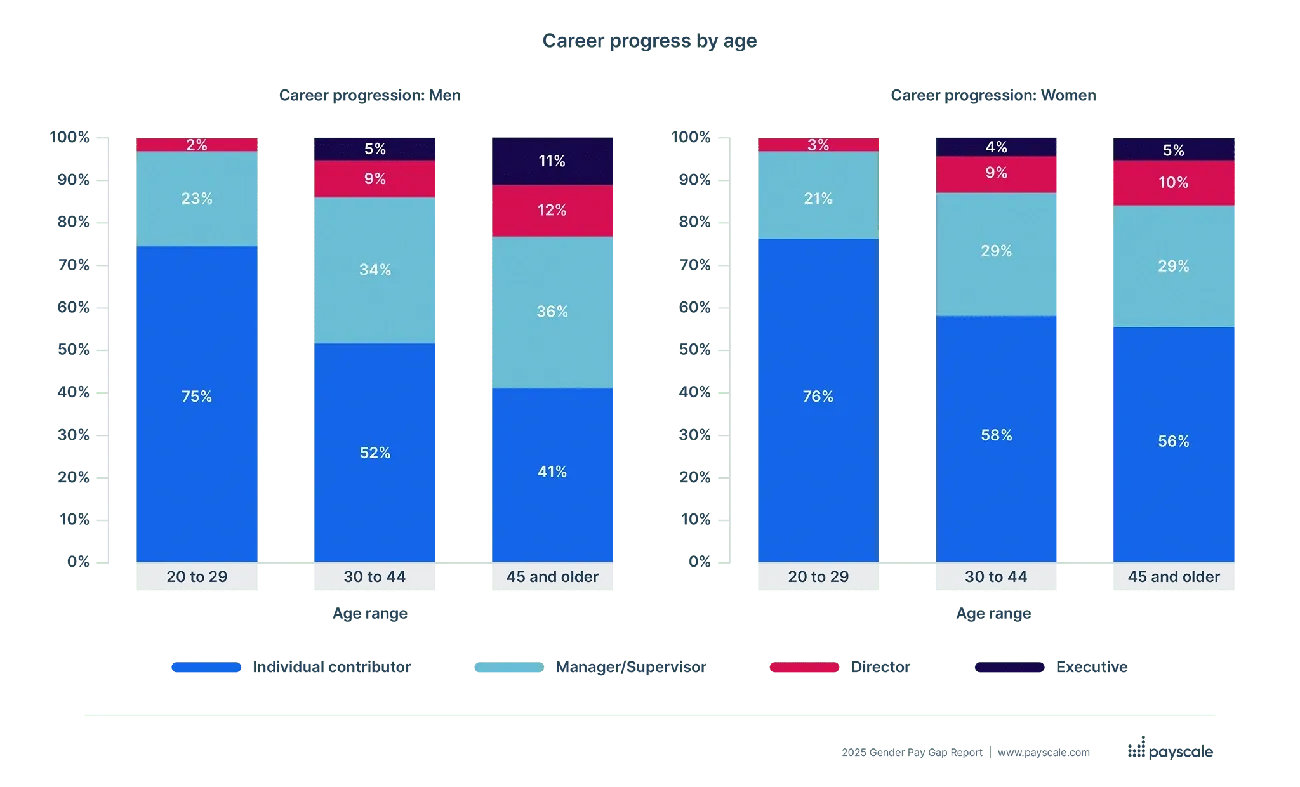
Image Source: Payscale
Money talks. But sometimes it lies.
The allure of a higher paycheck blinds many professionals to the bigger picture of their career journey. Almost 39% of people seek a higher salary as their primary motivation when changing jobs. This seemingly logical choice might be one of the biggest career mistakes you can make in the long run.
What the mistake is
Prioritizing salary over career growth means making employment decisions primarily based on compensation rather than development opportunities, meaningful work, or long-term career trajectory. This manifests as:
- Accepting a higher-paying position with limited learning opportunities
- Staying in a well-compensated but stagnant role
- Rejecting positions with valuable experience because they pay less
- Evaluating success solely through financial metrics
This mistake happens gradually. The higher salary initially provides satisfaction and security. Soon after, though, many find themselves stuck in roles where they’re “not learning anything new” or feeling “uninspired” about their work. The paycheck remains steady, but professional growth flatlines.
Why it hurts your growth
Focusing exclusively on salary creates invisible barriers to advancement.
First, it leads to skill stagnation. As one expert notes, “Every year that you spend not learning new skills and experimenting with new things is a year you really lose in the long term”. This can make your expertise obsolete almost overnight.
Second, high-paying positions sometimes offer higher compensation precisely because they’re less desirable or provide fewer growth opportunities. Companies occasionally “pay you well because the job stinks, and people don’t want to do it”. These roles might involve repetitive tasks, outdated technologies, or toxic environments masked by attractive compensation packages.
Third, this approach ignores the compound effect of skill development on long-term earning potential. Research shows that organizations providing professional development opportunities increase employee engagement by 15% and retention by 34%. These environments ultimately lead to more sustainable career advancement and higher lifetime earnings.
Most importantly, prioritizing salary above all else often results in decreased job satisfaction. A survey found that 77% of employees prioritized a balanced life over career advancement. When you’re trapped in a high-paying but unfulfilling role, your motivation gradually erodes, affecting performance and mental wellbeing.
How to fix it
Shifting your perspective requires a more holistic approach to career decisions. Begin by evaluating potential roles through multiple lenses beyond just compensation. Ask yourself:
- Does this position offer clear opportunities for professional growth?
- Will I gain transferrable skills that increase my value in the job market?
- Does the company culture support employee development?
- Are there mentorship opportunities or structured learning programs?
When considering job offers, examine the complete compensation package, not just the salary figure. Organizations that invest in employee development often provide benefits like education stipends, conference attendance, or internal training programs that significantly increase your long-term value.
Create a personal career development plan with both short and long-term goals. This helps you assess whether a position aligns with your broader trajectory regardless of immediate financial benefits. Remember that “continuous learning is directly linked to career growth and advancement opportunities”.
Additionally, initiate regular career conversations with your manager. Studies show that almost 90% of employees believe they should be responsible for their career development, and two-thirds of individual performance drivers are tied to career conversations. These discussions help ensure you’re continuously progressing toward your goals.
Finally, recognize that sometimes accepting a position with slightly lower compensation but superior growth potential represents a strategic investment in yourself. As counterintuitive as it may seem, “making USD 50.00k/year or USD 61.00k/year will rarely make a big difference for you in the medium term, but learning new skills daily and getting exposed to a better career path will absolutely make a difference”.
Neglecting to Build a Personal Brand
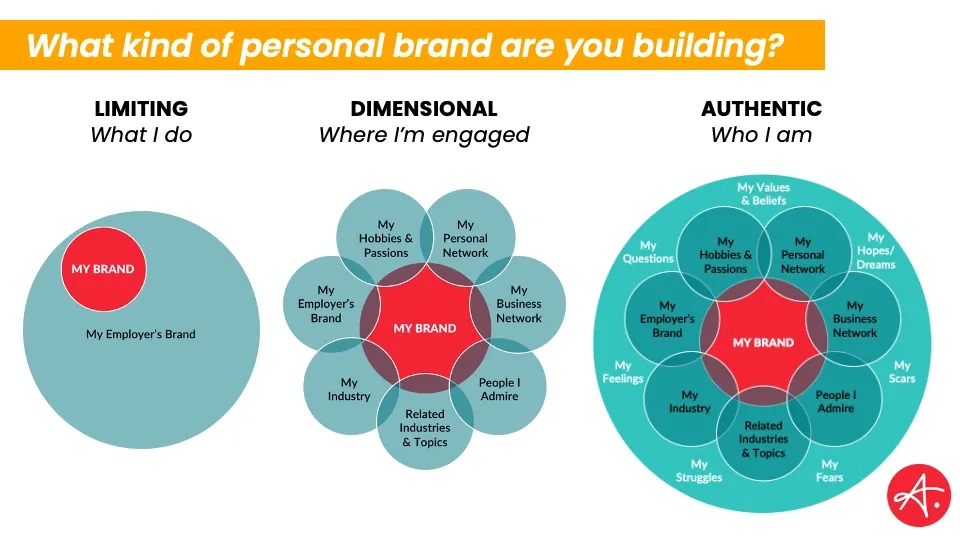
Image Source: Authentic Brand
Your professional reputation exists whether you manage it or not.
Most professionals make a critical error: they believe their work will speak for itself. This mindset might have worked twenty years ago, but personal branding has become essential for career advancement in 2025. The professionals who thrive understand this reality and act accordingly.
What the mistake is
Neglecting your personal brand means failing to intentionally shape how others perceive your professional identity, values, and expertise. This mistake shows up in predictable ways:
- Outdated LinkedIn profiles gathering digital dust
- Avoiding sharing accomplishments and expertise publicly
- Inconsistent online presence across platforms
- Downplaying achievements out of fear of seeming arrogant
- Focusing solely on past accomplishments without a forward-looking narrative
- Getting caught in day-to-day work without investing in reputation building
Women often struggle with this mistake more frequently, as they tend to downplay achievements and avoid self-promotion. As one expert notes, “if we don’t confidently tell our own stories, others will make up their own about us—and they might not give us the credit we deserve.”
Many professionals believe personal branding is optional or merely about self-promotion. This misunderstanding leads to missed opportunities, as approximately 57% of employers are less likely to interview candidates they can’t find online.
Why it hurts your growth
The consequences of neglecting your personal brand create invisible barriers to success. You become invisible in a crowded marketplace. Without a clear identity, people struggle to understand what sets you apart, making you blend in with everyone else.
Career opportunities slip through your fingers. According to LinkedIn, 71% of professionals believe a strong personal brand leads to increased career opportunities. Employers and potential partners examine your online presence before making decisions. An incomplete or inconsistent brand can lead to being overlooked for promotions, struggling to make meaningful connections, or becoming stuck in unfulfilling roles.
You lose control of your narrative. Without actively managing your personal brand, others fill in the gaps, potentially leading to misunderstandings about your work, values, or character. This loss of control means your reputation might not accurately reflect your true capabilities and aspirations.
Trust becomes harder to build. Generally, 84% of people trust online reviews as much as personal recommendations. Without a solid personal brand, establishing the trust necessary for professional relationships becomes challenging.
A weak or undefined brand creates a situation where, despite doing excellent work, you remain underappreciated and underpaid for your contributions.
How to fix it
Building a strong personal brand requires deliberate action and consistent effort. Start by clarifying your “why”—understand what specific goals you’re trying to achieve through your personal branding efforts. This clarity will guide every aspect of your brand development.
Conduct an honest assessment of your current brand versus your desired perception. How do others see you now, and how would you like to be perceived? This gap analysis helps direct your branding strategy.
Develop visibility by proactively sharing your work and accomplishments. This doesn’t mean constant self-promotion, but rather thoughtfully showcasing your expertise. Video remains critical for effective personal branding in 2025, as video posts receive significantly more engagement than text-based updates.
Build a consistent presence across multiple channels. Your LinkedIn profile should reflect the same values and personality as your other digital platforms, creating a seamless experience for anyone interacting with your brand.
Use authentic storytelling to differentiate yourself. Your personal narrative makes you unique and helps build connections with others. Focus not just on past accomplishments but also on presenting a forward-looking narrative that showcases your vision and readiness for future challenges.
Personal branding isn’t a one-time project—it requires continually reassessing and adjusting to ensure you live and project your intended brand. Making this investment in yourself will open doors to new opportunities and position you for success in 2025 and beyond.
Ignoring Feedback and Self-Reflection

Image Source: Built In
Feedback flows around us like water, yet most professionals act like they’re wearing raincoats.
This mistake operates entirely within your control, making it both the most frustrating and the most fixable career killer of 2025. Unlike external market forces or company politics, your relationship with feedback and self-reflection determines whether you grow or stagnate.
What the mistake is
Ignoring feedback and self-reflection means consistently disregarding input about your performance while failing to examine your own behaviors, motivations, and actions. This typically manifests as:
- Dismissing constructive criticism as invalid
- Receiving feedback passively rather than proactively seeking it
- Defending or justifying instead of listening
- Never setting aside dedicated time for self-reflection
- Avoiding difficult conversations about performance
- Focusing exclusively on external factors when things go wrong
Many professionals view feedback merely as an administrative task rather than a constructive dialog that fosters growth. Even positive feedback gets underutilized, as approximately 65% of employees report wanting more feedback than they currently receive.
Self-reflection gets pushed aside in our rapid-paced work environments. Despite research showing that leaders who reflected on good leadership qualities made more progress toward their goals, most professionals move immediately from one task to the next without pausing to consider what happened or what they learned.
Why it hurts your growth
The costs of this mistake compound over time. Feedback acts as a mirror to your performance, revealing blindspots impossible to see independently. Without this external perspective, you remain trapped in limited perceptions of your abilities.
When management ignores employee feedback, it creates a communication vacuum leading to disengagement and frustration. When you ignore peer feedback, you signal disinterest in improving collaborations. The result? Stalled advancement, damaged professional relationships, and diminished workplace satisfaction.
You miss valuable learning opportunities. Feedback highlights gaps in skills, knowledge, or behavior, providing insights into areas needing development. Self-reflection similarly enables you to recognize your individual strengths and weaknesses, empowering strategic career development.
Perhaps most critically, ignoring feedback and self-reflection prevents adapting to changing circumstances. Companies that overlook feedback risk becoming like Blackberry, which failed to heed user input about emerging technology trends and subsequently lost market dominance.
How to fix it
Reframe feedback as a gift representing another person’s time, attention, and expertise. Express genuine appreciation whenever someone offers input, regardless of whether it feels positive or negative initially.
For maximizing feedback effectiveness:
- Prepare targeted questions about specific aspects of your performance
- Set aside dedicated time for focused feedback discussions
- Listen actively and take notes during conversations
- Ask clarifying questions to fully understand the message
Implement regular self-reflection by scheduling it like any other important commitment. Research indicates even 20 minutes of weekly reflection can be transformative. During these sessions, ask yourself specific questions like:
- What went well this week?
- What did I learn?
- What would I want to improve?
Experiment with different approaches. Some find walking conducive to reflection, others prefer journaling, while many benefit from structured assessment tools. The key is creating a process that works for your particular style and schedule.
Use feedback to set both personal and professional goals. Align external input with your aspirations to ensure your efforts target meaningful growth. Track progress through regular journaling combined with external feedback for a comprehensive development approach.
Remember that self-reflection isn’t self-judgment. Acknowledge insights about strengths and weaknesses without agonizing over mistakes. The goal is increased awareness leading to intentional improvement, not perfectionism or self-criticism.
Not Keeping Your Skills Updated
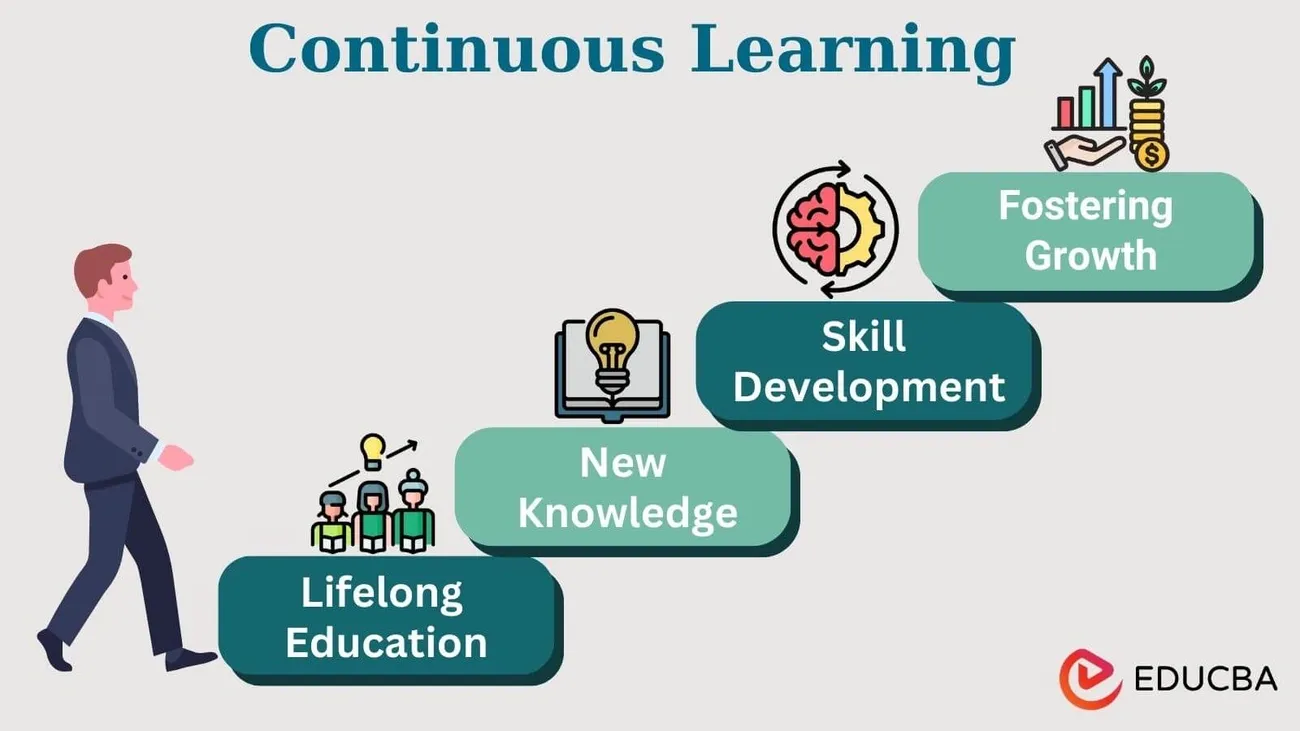
Image Source: EDUCBA
Your skills have an expiration date. Most professionals just don’t know it yet.
The half-life of professional skills continues to shrink in today’s rapidly evolving workplace. What qualified as cutting-edge expertise just a few years ago might now render you obsolete in the job market of 2025.
What the mistake is
Not keeping your skills updated means allowing your professional capabilities to stagnate while the world moves forward. This mistake shows up when you rely solely on skills acquired during formal education, neglect to learn emerging technologies in your field, dismiss industry trends as temporary or irrelevant, fail to allocate time for professional development, and avoid unfamiliar tools or methodologies.
The World Economic Forum estimates that 44% of core skills will change by 2027. Yet many professionals operate as though their current skill set will remain relevant indefinitely. Meanwhile, executives believe nearly half (49%) of the skills that exist in today’s workforce won’t be relevant by 2025.
Here’s the uncomfortable truth: your degree isn’t protecting you anymore.
Why it hurts your growth
Skill stagnation creates a widening gap between your capabilities and market demands. PwC research shows 79% of CEOs globally worry that skills shortages will hinder their company’s growth. As these gaps expand, your employability diminishes accordingly.
The technological shift isn’t just changing what we do—it’s fundamentally reshaping entire professions. Executives estimate that within five years, organizations will eliminate over half (56%) of entry-level knowledge worker roles because of AI.
Stalled skill development affects your daily performance. When employees’ workplace skills become outdated, they take longer to complete tasks, directly impacting productivity and operational costs. This performance decline ultimately damages your professional reputation and limits advancement opportunities.
The professionals who thrive aren’t necessarily the smartest. They’re the ones who never stop learning.
How to fix it
Start by conducting a personal skills audit to identify your gaps. Since 42% of companies remain unaware of their biggest skill gaps, taking individual responsibility becomes essential. Analyze job descriptions in your field to identify emerging skills requirements.
Embrace continuous learning as a daily habit rather than an occasional activity. As industries evolve due to technological advancements, employees must develop future-ready skills like analytical thinking, creativity, and adaptability to remain competitive. Dedicate specific time blocks for skill development—even 20 minutes daily compounds significantly over time.
Use AI tools to enhance your existing strengths. One valuable career skill involves figuring out how to use emerging AI technologies as a booster to make your strengths even stronger. Focus particularly on skills that complement rather than compete with automation.
Seek employers who prioritize learning culture. Organizations that help workers learn new skills are smarter businesses, providing both job security and growth opportunities. Look for companies offering education stipends, internal training programs, or dedicated learning time as these signal a commitment to employee development.
The question isn’t whether change is coming. It’s whether you’ll be ready when it arrives.
Letting Others Dictate Your Career Path

Image Source: LinkedIn
Your career is not a democracy.
Yet countless professionals hand over the keys to their professional future, allowing others to drive while they sit helplessly in the passenger seat. This represents one of the most devastating yet overlooked career mistakes—surrendering the steering wheel of your career to others.
Many talented individuals unconsciously allow partners, managers, or societal expectations to shape their career trajectory. They become passengers on their own professional journey, watching opportunities pass by while others make decisions for them.
What the mistake is
This silent mistake occurs when external voices drown out your own professional vision. You allow someone to manage every aspect of your career or make critical decisions without your active input. It includes yielding to a partner who wants you to change industries regardless of your passion, accepting whatever opportunities happen to cross others’ desks, or changing your goals whenever you face rejection.
The core issue? You become a “passive recipient” rather than an “active architect” of your career development.
Why it hurts your growth
Surrendering career autonomy creates multiple barriers to professional advancement:
- It disconnects you from your own values and strengths, blocking clear self-perception
- External control leads to stress, burnout, and loss of personal agency
- It erodes self-esteem, self-worth, and confidence, which can take substantial time to rebuild
- You become trapped in circular patterns that prevent you from reaching your full potential
- The resulting decisions often lead to disengagement and unfulfillment, joining the 87% of employees worldwide who aren’t engaged in their work
This abdication of responsibility might feel easier momentarily since it removes the pressure of choice. But it virtually guarantees mediocrity in your professional journey.
How to fix it
Taking control of your career requires deliberate action.
First, conduct an honest self-assessment—understand your values, priorities, strengths, and inner motivations. Personality tests can provide valuable insights into understanding yourself better.
Create a structured action plan containing your short and long-term goals with specific steps to achieve them. This roadmap helps hold yourself accountable while celebrating small wins.
Set clear boundaries in your professional relationships. Identify what is and isn’t acceptable to you, then enforce these boundaries consistently. Trust your instincts—if something about a workplace dynamic feels wrong, don’t dismiss those feelings.
Take small, strategic steps toward independence if leaving a controlling situation feels overwhelming. This might involve updating your resume, talking to recruitment consultants, or exploring job opportunities that align with your authentic aspirations.
Your career belongs to you. Nobody else should be driving.
Underestimating Your Professional Value
“Doubt kills more dreams than failure ever will.”
— Suzy Kassem, Poet, philosopher, and author of ‘Rise Up and Salute the Sun’
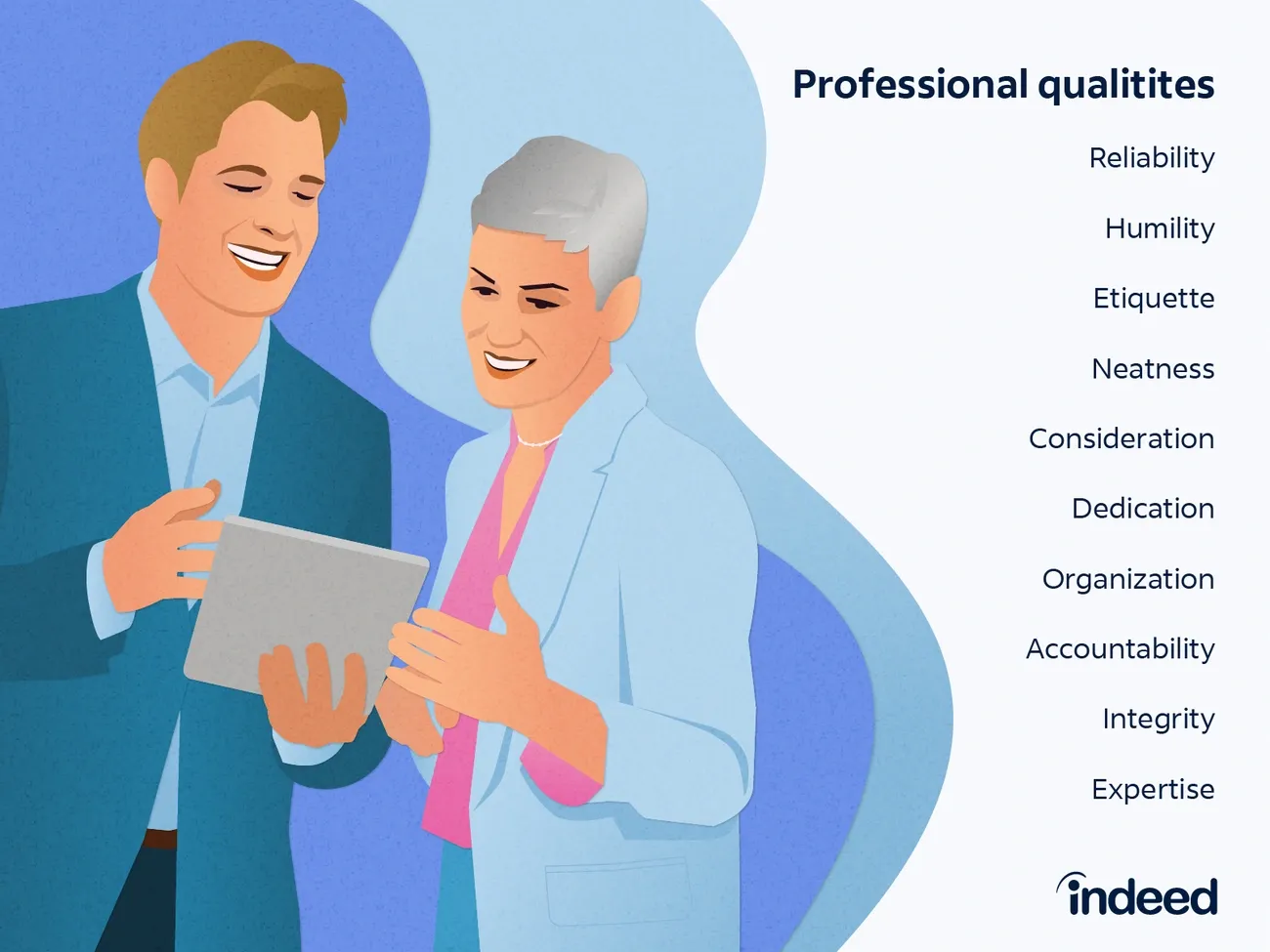
Image Source: Indeed
“Doubt kills more dreams than failure ever will.”
— Suzy Kassem, Poet, philosopher, and author of ‘Rise Up and Salute the Sun’
Your biggest career enemy isn’t your competition. It’s not the economy. It’s not even your boss.
It’s you.
Many professionals silently sabotage their careers by failing to recognize their true worth in the workplace. This invisible barrier to advancement often goes undetected until years of potential growth have slipped away.
What the mistake is
Underestimating your professional value means consistently misjudging your skills, contributions, and market worth. It’s the persistent belief that you’re less capable or valuable than you truly are. Research shows up to 82% of people experience impostor phenomenon, struggling with the sense they haven’t earned their achievements and are merely frauds. This manifests as:
- Charging less than market rate for your services
- Downplaying accomplishments during interviews or reviews
- Avoiding asking for raises or promotions
- Apologizing excessively for minor mistakes
- Attributing successes to external factors like “luck” rather than skill
Here’s the shocking truth: studies found that users underestimated their skill levels in 56% of cases, while 32% overestimated them. Only 11% accurately assessed their abilities, meaning 7 in 10 professionals can’t correctly judge their capabilities.
Why it hurts your growth
Undervaluing yourself creates a vicious cycle of diminishing returns. It leads to financial losses—when you consistently accept less than market value, you devalue your skills and experience, making future negotiations more difficult.
This mindset damages your career trajectory by causing you to miss advancement opportunities. When you underestimate your abilities, you shy away from challenging projects or promotions that could propel your career forward.
Chronic undervaluation erodes self-confidence. When employees continuously underestimate their skills, they waste valuable time studying material they already understand. This constant self-doubt contributes to increased anxiety, depression, and career burnout.
How to fix it
Begin rebuilding accurate self-assessment through regular feedback. Ask trusted colleagues, mentors, or friends for candid input about your unique strengths. When multiple people highlight the same qualities, that’s powerful evidence of your true capabilities.
Quantify your accomplishments whenever possible. Numbers add credibility, paint a clear picture of your impact, and make achievements stand out. This creates an objective measure of your value that’s harder to dismiss.
You must also confront your self-talk. Replace negative internal narratives with evidence-based assessments of your abilities. Remember that being truthful about both strengths and weaknesses enables the most effective professional development.
Stop waiting for permission to value yourself. The world won’t hand you confidence—you must claim it.
Your Career Mistake Quick Reference Guide
Here’s the brutal truth: recognizing these mistakes is only half the battle. The real power lies in taking action.
This table gives you everything you need to diagnose where you stand and what to do about it. Print it out. Keep it visible. Let it serve as your career checkpoint.
| Career Mistake | Key Signs/Manifestations | Main Impact on Career | Primary Solutions | Notable Statistics |
|---|---|---|---|---|
| Staying in Your Comfort Zone Too Long | – Mastered current role with no new learning – Repetitive work days – Same position for years – Stopped networking |
– Skill stagnation – Missed opportunities – Reduced resilience – Stifled creativity |
– Start with small challenges – Volunteer for new projects – Seek regular feedback – Set stretching goals |
7% of employees remain in same role for 5+ years; 14% never received promotion |
| Prioritizing Salary Over Career Growth | – Accepting higher pay with limited learning – Staying in stagnant roles – Rejecting growth opportunities for money |
– Skill stagnation – Limited long-term potential – Decreased job satisfaction |
– Evaluate complete compensation package – Create development plan – Consider long-term value |
39% seek higher salary as primary motivation for job changes |
| Neglecting to Build a Personal Brand | – Outdated LinkedIn profiles – Avoiding sharing accomplishments – Inconsistent online presence – Downplaying achievements |
– Invisibility in marketplace – Missed opportunities – Loss of narrative control |
– Clarify personal brand goals – Share work proactively – Maintain consistent presence |
57% of employers less likely to interview candidates they can’t find online |
| Ignoring Feedback and Self-Reflection | – Dismissing criticism – Passive feedback reception – No dedicated reflection time – Avoiding performance discussions |
– Missed awareness opportunities – Damaged relationships – Stunted development |
– Schedule regular reflection time – Ask targeted questions – Take notes during feedback – Set goals based on input |
65% of employees want more feedback than they receive |
| Not Keeping Your Skills Updated | – Relying on old skills – Neglecting new technologies – Avoiding unfamiliar tools – No professional development time |
– Diminished employability – Reduced performance – Limited advancement |
– Conduct skills audit – Daily learning habits – Leverage AI tools – Seek learning-focused employers |
44% of core skills will change by 2027 |
| Letting Others Dictate Your Career Path | – Yielding to external pressure – Passive career decisions – Following others’ expectations – Lack of personal vision |
– Disconnection from values – Increased stress/burnout – Eroded self-esteem |
– Conduct self-assessment – Create structured plan – Set clear boundaries – Take strategic steps |
87% of employees worldwide aren’t engaged in their work |
| Underestimating Your Professional Value | – Charging below market rate – Downplaying accomplishments – Avoiding asking for raises – Excessive apologizing |
– Financial losses – Missed advancement – Eroded confidence |
– Seek regular feedback – Quantify accomplishments – Address negative self-talk |
82% experience impostor phenomenon |
Which mistake resonates most with your current situation? That’s your starting point.
Conclusion
These seven silent career mistakes don’t have to define your professional future.
Career success demands intentional action. The professionals who rise above the noise actively step outside comfort zones, value growth over quick payoffs, and build authentic personal brands. They embrace feedback, stay current with evolving skills, own their career decisions, and recognize their true worth.
Your career represents one of life’s most significant investments. Awareness of these silent career killers gives you tremendous power as you shape your professional destiny.
I’ve mentored dozens of professionals who initially struggled with multiple mistakes simultaneously. After addressing them systematically, they experienced remarkable transformations. Small, consistent changes often yield the most sustainable results.
The professional landscape will continue evolving. Technology advances, workplace expectations shift, new challenges emerge daily. Your adaptability remains your greatest asset.
View these potential pitfalls as opportunities for growth rather than threats. Each mistake identified and corrected brings you closer to your career aspirations.
Career development happens through deliberate, ongoing action. Today marks the perfect time to honestly assess which patterns might be holding you back. Your future self will thank you for the courage to make changes now.
The true measure of professional success lies not in avoiding every mistake but in learning and growing from each one.
Which career-limiting pattern will you break free from today?
Key Takeaways
These seven silent career mistakes can derail your professional growth without you even realizing it. Here are the essential insights to protect and accelerate your career in 2025:
• Break free from comfort zones gradually – Take on small challenges daily rather than massive leaps to build resilience and prevent skill stagnation.
• Prioritize growth over immediate salary gains – Focus on learning opportunities and skill development for higher long-term earning potential and job satisfaction.
• Build your personal brand consistently – Actively manage your professional reputation online, as 57% of employers won’t interview candidates they can’t find digitally.
• Embrace feedback and regular self-reflection – Schedule weekly 20-minute reflection sessions and actively seek input to accelerate professional development.
• Update skills continuously – With 44% of core skills changing by 2027, dedicate daily time to learning new technologies and methodologies.
• Take control of your career path – Don’t let others dictate your professional journey; create your own structured plan aligned with your values and strengths.
The most successful professionals actively manage these areas rather than hoping their work will speak for itself. Small, consistent actions in addressing these silent mistakes compound into significant career advantages over time.


